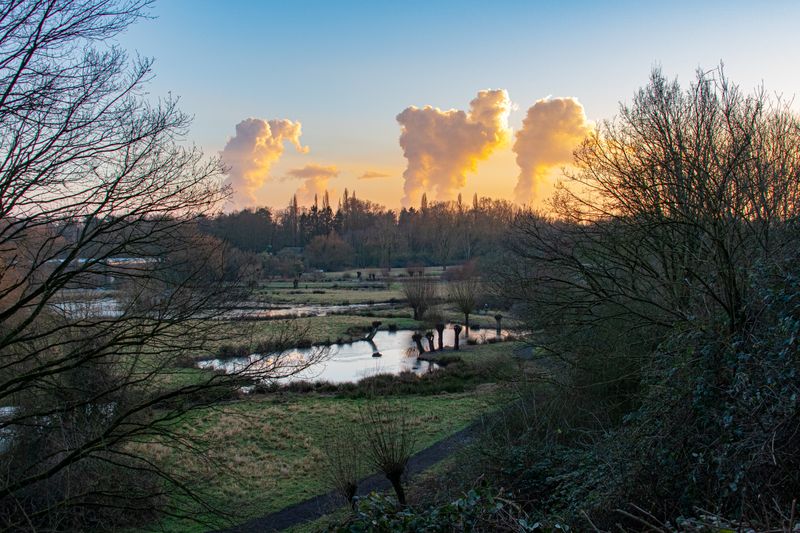Introduction
A recent opinion poll commissioned by Greenpeace International in seven major cities across the Global South reveals that less than half of the respondents feel safe from extreme weather events. The survey, conducted by YouGov, also highlights the top concerns of urban residents, with climate change-related issues such as traffic congestion and air pollution topping the list. Despite these challenges, over half of the respondents remain optimistic about the future, believing that their cities have the potential to become their dream cities. Greenpeace emphasizes the need for a comprehensive approach to address the climate emergency, incorporating social and economic factors, and calls for inclusive decision-making processes that involve marginalized communities. This report examines the findings of the poll, discusses the significance of these results from a philosophical perspective, and offers recommendations for addressing the issues raised.
The Poll Results
According to the survey results, less than half of the respondents in the seven cities feel safe from extreme weather events. This finding highlights the vulnerability of urban populations in the face of climate change. It also suggests that addressing safety concerns is crucial for building resilient cities. The poll further reveals that the top concerns of urban residents are closely linked to climate change, with traffic congestion and air pollution being the two most commonly mentioned problems. This indicates that people are increasingly aware of the environmental impact on their daily lives.
The Intersection of Climate Change and Social Issues
Greenpeace emphasizes the need for a comprehensive perspective that combines the consideration of social and economic issues with climate change. The survey results show that respondents also identified crime and violence, corruption, unemployment, and the increasing number of people moving to cities as significant problems in their urban environments. This recognition underscores the interconnectedness of environmental challenges with broader societal issues. It implies that addressing climate change cannot be isolated from addressing social and economic inequalities.
Gabriela Vuolo, Urban Justice Global Campaign Leader at Greenpeace International, points out that historically excluded communities are often the ones most impacted by both the climate crisis and social crises. Therefore, their inclusion in decision-making processes is crucial. This statement aligns with the growing recognition that marginalized communities should play an active role in shaping solutions for their own communities. By empowering these communities, decision-makers can tap into their lived experiences and collective power, contributing to more inclusive and sustainable transformations.
Hope for the Future
Despite the challenges highlighted by the poll, more than half of the urban residents surveyed remain optimistic about the future. They believe that their cities can become their dream cities, suggesting a collective desire for positive change. Greenpeace highlights the importance of recognizing and amplifying the voices of communities working towards building better cities. It points to instances where communities have demonstrated their power to effect change, such as women demanding equality or neighborhoods resisting extreme weather events.
This optimism reflects the human capacity to imagine and work towards a better future. It signifies the resilience and hope that transcends the challenges faced by urban populations. However, it is essential to recognize that hope alone is not sufficient to bring about change. Concrete actions and inclusive decision-making processes are necessary to transform these aspirations into reality.
Recommendations and Conclusion
The poll conducted by Greenpeace International highlights the urgent need for comprehensive and inclusive approaches to address the climate emergency in Global South cities. The findings underscore the significance of considering social and economic issues alongside environmental concerns. Decision-makers must actively involve marginalized communities in shaping the policies and solutions that affect their lives.
To address the safety concerns related to extreme weather events, cities need to invest in resilient infrastructure, early warning systems, and disaster preparedness measures. By doing so, cities can mitigate the risks associated with climate change and safeguard the well-being of their residents.
Furthermore, tackling issues such as traffic congestion and air pollution requires implementing sustainable transportation systems and promoting renewable energy sources. These measures will not only improve urban environments but also contribute to combating climate change.
In conclusion, the Greenpeace opinion poll sheds light on the safety concerns and top priorities of urban residents in Global South cities. It highlights the need for a comprehensive perspective on addressing climate change and emphasizes the importance of inclusive decision-making processes. By recognizing the collective power of marginalized communities and working towards building more resilient, sustainable, and equitable cities, we can navigate the challenges posed by the climate crisis and create a better future for all.

<< photo by Siegfried Poepperl >>
The image is for illustrative purposes only and does not depict the actual situation.
You might want to read !
- Syria Torture Case: An Urgent Test for International Justice
- The Escalating Conflict in Israel and Palestine: A Grave Humanitarian Crisis Unfolds
- New York City: Striking the Balance Between Free Speech and Human Rights
- Introducing The Climate Justice Walk: Empowering People’s Journey for Climate Justice
- New York City Mayor: Championing Human Rights in the Face of Divisive Rhetoric
- The Battle Over Immigration: Examining the Extremes in Texas
- India: Using Terrorism Financing Watchdog Recommendations to Suppress Civil Society
- The Power Divide: Navigating Inequality in Transportation
- Uganda’s Labor Rights: Upholding the Treaty to Ensure Workplace Protection
- Victim-Blaming: The Disturbing Stance of a Kazakh Parliamentarian